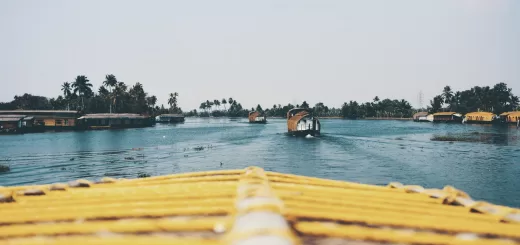VIRTUAL REALITY IN RELAUNCHING TOURISM INDUSTRY POST PANDEMIC

Khevna.P.Shah, INN/Bangalore
@Shahkhevna1, @Infodeaofficial
Tourism is an essential sector for the success of the economy around the world. Tourism not only inflates the economy, but also provides thousands of job opportunities, develops the infrastructure of the country, and also plants a way of cultural exchange between foreigners and citizens. Travelling is always a getaway from reality and the Hodophile explores the culture, cuisine, and people around the globe.

But ever since the pandemic struck, the tourism industry took a major hit and the Hodophiles were caged at their homes. And because of Covid-19, many people became aware of virtual reality mainly in the tourism industry. Digital technologies influence consumer behavioral changes including the way people search for, access tourism-related content. Due to the situation, people are frustrated and hence devoting time towards virtual reality because it has given them a serene and calm atmosphere.
Virtual reality enables travelers to experience a traveler beforehand and it also entertains a positive influence on the booking behavior of consumers. Virtual Reality may be a simulation of an imaginary world, and when it’s applied in touristic experiments, it considers the sense of sight, a lot of experiences depend on visual stimuli.
Usually, VR application is applied to offer an experience on the destination. This application could be a route tracker with a map and direction tracker, as well as a VR-enabled service. As tourists travel, this app guides them to their destination by providing a virtual reality image of the places they pass through as well as weather conditions. This application is often accessed anywhere. Because the navigator crosses each place, pop-ups appear on the screen for the tourist to work out the location and also the features. This application focuses on telepresence, which encompasses all five senses. This medium would actually provide tourists an opportunity to share dinner along with a friend located in a special region.
In this pandemic scenario, the use of Virtual Reality (VR) in the tourism sphere is a growing topic of interest among practitioners and academics. A non-exhaustive list of potential impacts of VR in tourism includes the look of places and experiences, the elimination of barriers that increase accessibility and open up distant places, the education and guidance of tourists, the preservation of fragile sites, enhanced entertainment, and also the ability to broaden global interaction among travelers. All these impacts are associated with tourists’ experiences and activities within a destination; however, there appears to be limited research on the opportunities of VR for destination marketing.
Virtual reality in the travel and tourism sector has the ability to change people’s minds on where they want to go, how open it is, and how productive it can be in closing the gap between what visitors expect and what they actually receive. It may also be a lead to better ecosystem growth and revenue for countries.
Despite the impact of covid 19 on the tourism sector, businesses operating in the travel industry were quick enough to adopt virtual reality technology. When the entire world faced lockdown, virtual reality offered an effective way for tourism businessmen to give their customers a taste of what they can expect to experience. Tourists needed assistance to travel to a particular place. They may seek assistance from the guides /past travelers, check the reviews on various platforms and then hold on to a particular decision. But through intelligent use of virtual reality, however, this process can be shortened significantly. With good internet access, one can get done with all this within seconds.
VR’s applications and implications for the tourism sector are both vast and significant, so the insights gained from future VR tourism research can provide direct, practical value to the tourism sector. Only with a more widespread and complete understanding of the relationships between VR and tourism will these challenges best be met and the opportunities best exploited. it will be the job of tourism researchers and professionals to exploit VR for the unique opportunities it presents.




